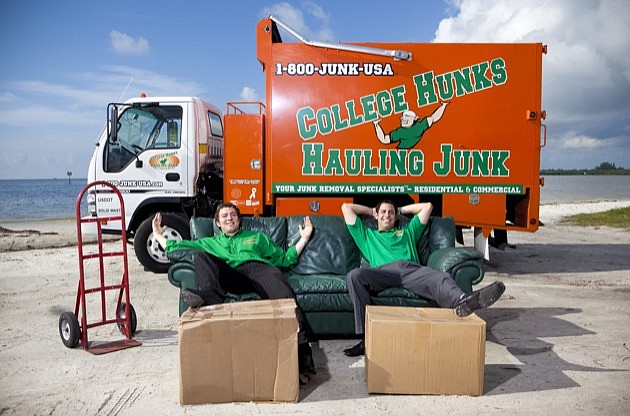- July 26, 2024
-
-
Loading

Loading

Omar Soliman never considered himself a writer, but plenty of words floated around his mind one night in 2007 after a breakout session at the annual bash for the Entrepreneurs Organization in Las Vegas.
The speaker at the session warned the young entrepreneurs in the room: Begin the process of writing a book about your business now, before 10 years pass and you regret not doing it sooner. A few hours later, Soliman and his business partner, Nick Friedman, chatted about how to write their book over a drink at the hotel bar.
Soliman and Friedman are co-founders of College Hunks Hauling Junk, a Tampa-based franchise company that removes clutter and junk from offices and homes. The one-time Inc. 500 company for fast growth surpassed $3 million in annual revenues last year. It has 30 franchises in more than 10 states.
Turns out the conversation at the bar in Vegas had staying power. The duo's book, “Effortless Entrepreneur: Work Smart, Play Hard, Make Millions,” was recently published.
The book is part autobiography and part how-to. Friedman, 28, hopes parents will buy the book for their adult-age children, a timely purchase considering how the job market has forced more people into entrepreneurialism.
Soliman, meanwhile, sees the book has a launching pad for his long-term vision: To help other young people become successful entrepreneurs, both through his business and other fields.
“Obviously, as a company, we want sales to be high,” says Soliman, 28. “But our overall purpose is to launch future entrepreneurs.”
The book covers some of the lessons Soliman and Friedman have learned in the last five years of trying to build College Hunks into a national company. The key lessons, which the authors say have become some of their principles for running the business, include:
• MISTAKE REDEMPTION: Friedman says mistakes can be welcomed, because many times errors point to a lack of a system in the company that can be fixed.
Of course, learning from mistakes isn't a new business concept. But Friedman and Soliman, in the book and an interview with the Review, detail how they've taken the concept to new levels. For example, at staff meetings, the founders ask employees to openly go over mistakes made at any level of the company.
• THINK BOLD: Like many small business owners, Soliman and Friedman understand the value of dreaming big, both for the business itself and for something employees to follow. They also say the internal competitions they hold at the company to find ways to be even bolder are important “for generating team loyalty and a loyal client base.”
• GET CLOSE: Repeat clients are even more important in the recession, the authors have learned, so they put a big emphasis on customer loyalty programs and initiatives. The staff makes “happy check” follow-up calls and every customer gets an email survey with incentives to respond, like a $25 restaurant gift certificate. The company has what it calls Telephone Tuesdays and Thank You Thursdays to execute its strategy.
• CELEBRATE VICTORIES: The authors say it's crucial to recognize employees for outstanding work. The rewards can be as simple as a write-up on a company blog, but praise is a key motivator, they've learned.
• ALWAYS HUSTLE: Friedman says he and Soliman constantly practice their sales pitch, even after being in business for five years. “Business isn't just going to come in the door,” says Friedman. “You need to get out there.”